|
You know how Saturday feels? That loose, easy roll into the day when you know you’re going to get lots of fun stuff done? That’s the feeling I have every day. Even if it’s Monday and I have appointments out the wazoo, I still have that feeling. It’s Saturday, and I’m excited because this is going to be a fun day!
Of course, there’s the inevitable to-do lists that will never be done - they just keep growing. There’s cooking and cleaning and appointments. Problems to solve. Break downs. Break ups. Breaking news. As long as we’re alive, there’s an endless stream of people competing for our attention. At least, if we play our cards right. If people aren’t wanting our attention, then we’ve got an even greater problem. There will be mistakes, missteps, misspoken words. Always more to learn and more to do. This is the beauty of being alive. Life is streaming through us for this brief moment in time, and almost all of it is beyond our control. The only thing we can control, really, is our internal state and how we meet it. I suggest you embrace life like a lover, full of positive expectancy. Open into it, eagerly, joyfully, with a smile on your face. Epictetus said 2,000 years ago, “I must die. Must I then die lamenting? I must be put in chains. Must I then also lament? I must go into exile. Does any man then hinder me from going with smiles and cheerfulness and contentment?” Epictetus was born a slave and crippled. His was not an easy life, and his challenges were, arguably, far greater than ours. He would eventually win his freedom and become Marcus Aurelius’ teacher. If you aren’t familiar with him, I recommend you read The Art of Living with a new interpretation by Sharon Lebell. His words are luminous, with the power to change your life. You may not change things on the outside, but what’s important is that you change things on the inside. That, my dears, will work a miracle. Enjoy your Saturday.
2 Comments
There’s an old saying, “If you do what you love, you’ll never work a day in your life.” Oh, don't get me wrong, you’ll work. To succeed at anything, you’ll probably work thousands of hours. But it will feel like play. Because when you do what you love, your creative juices are flowing, you feel alive and with a sense of purpose, and time flies. On the other hand, when you do something you hate, time drags, and you can’t wait to get away from it so that your "real life" can begin. That’s no way to live, and you don’t have to live that way. You’re entitled to do what you love. The mere fact that you were born gives you the entitlement. You have a purpose. A noble purpose. You came to do something that only you can do, and it’s your birthright to do it. You don’t owe anyone an apology or an explanation. It’s your life’s work.
Let me ask you, if you could do anything in the world, no holds barred, what would that be? Take a moment to go inside and think about it. I would offer that the thing you’d do for free, even if nobody paid you, that’s the thing you should be doing. That’s what lights you up. That’s your passion. Your love. That, my dear, is your work in the world. And I’ll let you in on a little secret. It doesn’t matter what it is. A long time ago, I was standing on a bridge in Switzerland surveying a beautiful town spread out before me, and an old man was sweeping the street with one of those long brooms that witches fly on. It was the early 70’s. Now the Swiss vacuum the streets. As I stood there, he slowly approached me as he worked, and as he came closer I could hear that he was singing to himself. He was quite old, at an age when most people would be home sitting in a rocking chair, but here he was, outside on a beautiful day, in a beautiful town, singing and smiling and working away. He was an old street sweeper, and he was happy. There was a big lesson in that moment for me. I realized that it doesn’t matter what you do. It only matters that you love what you do. When you’re young, you think success means making a lot of money. But success isn’t actually measured by how much money you make or how many things you accumulate. People who assist the dying say that the number one regret of people on their deathbed is that they didn’t spend more time with the people they love. Turns out it was loving relationship that they valued the most. Set up your life so that you’re in loving relationship. Love what you do. Love the people you work with. Love where you live. Love your home. Love your friends. Love the whole thing. Then you’ll be happy, and after all, isn’t that what we came here for? Why are you here? What is your purpose? What did you come here to do? Think about this long and hard, and then in the words of Mary Oliver, “Tell me, what is it you plan to do with your one wild and precious life?” I have been waiting my whole life to feel like an adult, thinking that at some point I would feel differently, that I’d cross some imaginary line and feel grown up. But that day has never come, and as I’m cresting the hill and looking at seventy just down the road, it has gradually dawned on me that it is never going to come. I will always feel twelve.
That people perceive me as an adult strikes me as a cosmic joke. When I was in my forties and learning to fly, I’d rent an airplane, and as I walked out on the tarmac with the keys in my hand, I’d get this rush. Holy shit! They just gave me the keys to a friggin’ airplane! Don’t they know I’m twelve? This is crazy! Crazy fun. Crazy exciting. Crazy thrilling. As I’d do my preflight inspection, I’d summon all my attention because I didn’t want to blow my cover. I knew if they realized I was twelve, they’d run out and take the keys away from me. Taxiing down the runway. Talking to the tower. All of it was absolutely delicious. Why? Because I’m twelve, and I’m flying an airplane! Being perceived as an adult definitely has its advantages. People listen when I talk. I get respect that they might not give a young person. When I say something, people think I know what I’m talking about, even though sometimes I don’t. It’s just because the words are coming out of a sixty-five-year-old mouth, and people don’t realize a twelve-year-old is speaking them. Even children obey me. They don’t know that I’m only a couple of years older than them. Before we bought the farm from Geneva, I remember her exclaiming one day out in the yard, “I’m eighty-two, and I don’t know how I got here.” Now I understand. I’m sixty-five, and I don’t know how I got here. What age do you feel? No one is guaranteed that they will make it to the end of the day. Death is not an abstract concept. It’s a reality. It’s a given that we will die, we just don’t know when or how. Some deaths come with a warning, other deaths are sudden, but either way, we die, and are gone from this world. Death is ever present in our life.
Death gives us the freedom to live life. The fact that we will die and everyone and everything will be taken from us is not a morose thought. It’s an empowering thought. When you realize that it all goes, either in one fell swoop on your death bed, or in drips and dribbles as you go through life, if you truly understand this, you are free. You’re not attached. You’re not clutching and desperate. Every experience becomes precious, because you realize you’re being allowed to live a little bit longer. You don’t take for granted what is happening, because you know it will never happen again. You don’t take people for granted, because you realize that person won’t always be in your life. They can be taken from you at any moment, and someday they will be, or you from them. But you’re together now, and you’re having this experience now, and how sweet it is! How joyful to feel this and see this and do this, What a gift! because it will all end. With death, this will all be over. But, it ain’t over yet! You are savoring it! Death is teaching you to savor life. I have had two house fires in my life, both homes reduced to charcoal heaps. All the stuff was gone, but look what remained - family and friends who helped us. Someday, like those houses, we too will be ashes, but our words will remain. You may be reading this and I may already be dead. It’s entirely possible. We’re still reading words that were written 2,000 years ago, learning from them. What do you want your words that remain to be? What will be your legacy? Make it something good. Something worthwhile. Something beautiful. Something from the heart. Something true. This is the gift of knowing we will die. It calls us to be great in this moment, while we still can. You’re alive right now, so take what’s left of your life and make it something great. I always wake up with the feeling that something wonderful is about to happen, like we’re right on the edge of something incredible. Picasso once said, “Everything is a miracle. It’s a miracle we don’t dissolve like a sugar cube when we get in the bathtub.” He was right. Miracles aren’t just great big happenings like seeing Our Lady of Fatima out in a field while you’re watching sheep - which can happen. Miracles are everywhere, all the time. They’re ordinary. Just look at the light on the grass. Look how the wind moves the leaves. Look at the birds. Stop and really look. Do you see how truly amazing life is?
We are living in an animated matrix of interactive wonderment, and what you bring to this moment affects everything. You are not only part of the web of life, you influence it. Right now, try a little experiment. Feel who is looking through your eyes. Slow down and feel your thoughts. Now shape them. Whatever you’re looking at, think “That’s incredible. That’s so fascinating.” Keep looking for a few moments. Now think “That sucks. That’s ridiculous.” Flip back and forth between the two thought patterns a couple of times. Feel the difference? Can you feel how when you think “That’s fascinating,” you move towards the object, and when you think “That sucks,” you move away from it? Which feels better to you? Which feels better to the thing you’re looking at? Can you see how where you’re coming from affects everything? Now go back to looking and think “That’s amazing. Wow.” Stay there. Stay in the wonderment of it all, because something wonderful is about to happen, and you don’t want to miss it. Amor fati. Latin: love of fate. To be happy, we must love life as it is. Not accept it or tolerate it, or worse yet, rail against it. We must love it. All of it. We must find true love inside ourselves for all people and all things and all experiences, whether we label them “good” or “bad.” For that, we need a really big perspective and often, a lot of time.
When I was a young person, I did not love all of life. I loved the parts that I liked, and I stayed high for 20 years trying to hang out in the parts that I liked, but the truth is I was running from a painful childhood, from years spent living out of a car, roaming the country, subjected to violence and poverty and abuse. I did not love that part of my life. It seemed to me an injustice, and it made me question God. It took a long time to see how the puzzle pieces fit together. Now that I’m in my sixties, when I look back over my life, I can see how much my lawless, impoverished childhood taught me. I learned to love reading and good penmanship, how to sell anything to anyone, how to ride horses. I learned loyalty and that you stick together. But the greatest lesson I learned was compassion. I know how it feels to be homeless, to not have winter clothes, to stand in line at a soup kitchen. So now, when a homeless person comes into the cafe that I run, I’m happy to let them use the washroom, glad to give them a cup of coffee, because I know how they feel. Because I lived in a car when I was seven, I have compassion for that person, and that is the greatest gift. When I questioned God as a child, God answered me directly. God spoke to me many times through animals. Birds would talk to me. And fish. You may think these were just the fantasies of a kid’s mind, but I don’t think so. It was a direct connection, made at an early age, that sustains me to this day. God still speaks directly to me. I have the hookup, with nothing and no one in between, and that got set in place living out of the car. The violence and abuse of my childhood argued for a disastrous teenage marriage to a drug dealer. When I was seventeen, I married a kid who was twenty-one, just back from Vietnam, and out of his mind. He was the first guy I ever slept with. I thought this big love was forever, plus I wanted out of the house. Six months into the relationship, he started beating the hell out of me. The violence escalated to the point that he would black my eye for leaving the bathroom door open. The way things were going, if I’d stayed in that relationship, I have no doubt he would have killed me. He pushed me to go visit my father in Switzerland (who I had just recently met), and I left the country ostensibly for a few weeks. I ended up staying in Switzerland for five years, and I never saw my husband again. It took me many years to see the perfection in this phase of my life. The violence and abuse were textbook and followed an archetypal formula - the jealous man, the lying wife, the fugue state of being beaten, the shame and blame, the apology, the make-up sex. It’s every abused woman’s story. When I read Tina Turner’s autobiography, I, Tina, I felt, “I know this.” I understood her life with Ike Turner. Her story was my story. Every woman over in the Women’s Center has some version of this story. When I fled to Switzerland, I barely knew my father. I’d grown up in the States with my mother, and I only knew the bust-out, white trash life she’d exposed me to. I knew nothing about my father’s side of the family, didn’t speak the language, didn’t know my relatives. I had no idea what the Swiss way of life was. Living there for five years, I became fluent in Swiss-German, worked in a bank, had Jungian therapy, got a divorce, met my grandmother and grandfather and aunt and uncle and half-brother. Had I not had that horrible marriage, I would have never come to know them. Now I understand why I spent my childhood cleaning my mother’s house, why everything has a place, why I automatically face things when I put them away. That made no sense to me as a child living out of the car, but as a Swiss, it makes perfect sense. It wasn’t until I lived in Switzerland that I saw how the puzzle pieces fit together. When I look at what’s happening in the world today, the ecological crisis that we’re in, the political divisiveness, the greed, the wars, the violence, the hatred. When I look at all this, I know that there is nothing outside of God’s plan for us. There is no Plan B. There is only Plan A, and it happens to look like this. We may not understand it, but It is perfectly designed to deliver our lessons. It’s up to us to refine our vision so that we can see the perfection in it, and learn what it’s here to teach us. Look at how galvanizing all this negativity is and our response to it. The Women’s March. March For Our Lives. The Me Too movement. The Green New Deal. Humans are in a refinement process, and our lessons take on monstrous proportions, both individually and collectively, because there’s nowhere that God won’t go. But it’s how we learn compassion and who we truly are and what we came here for. When we dig deep, we find God. Not the God of the Positive or the God of the Negative. The God of the Whole Thing. See the perfection and love the whole thing. Amor fati. Love of fate. |
Elaine's BlogAmor fati. Love what is. Everything is beautiful, but not everyone sees the beauty. Our work is to refine our vision so that we can see the Truth - the perfection in life as it is. Sometimes our greatest lessons come from our hardest experiences. Every moment is an opportunity to learn and to love. Archives
June 2019
Categories |
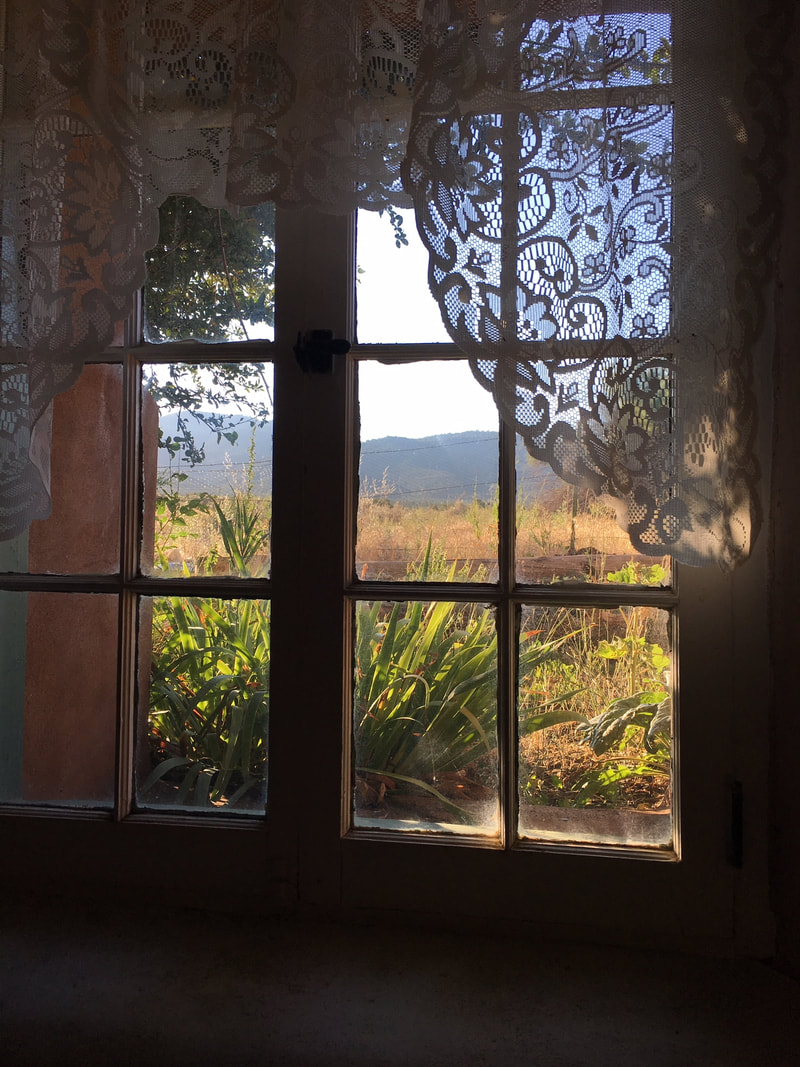
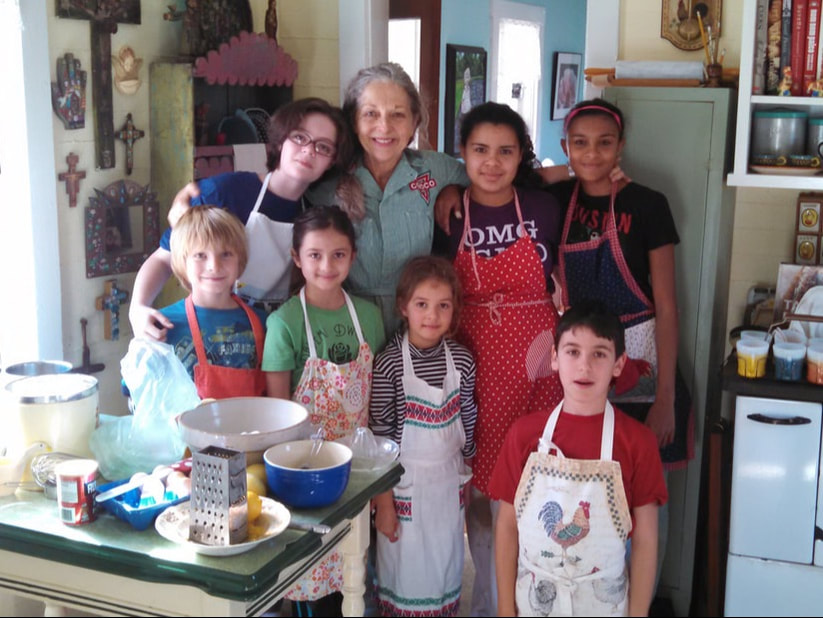
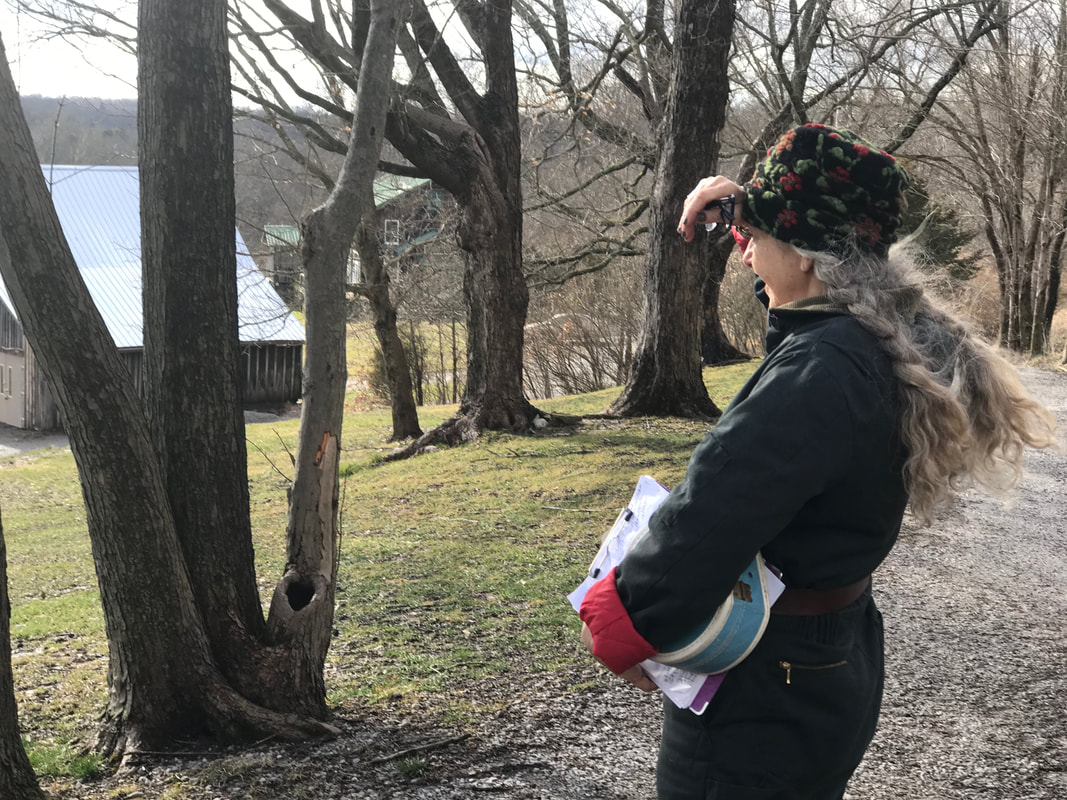
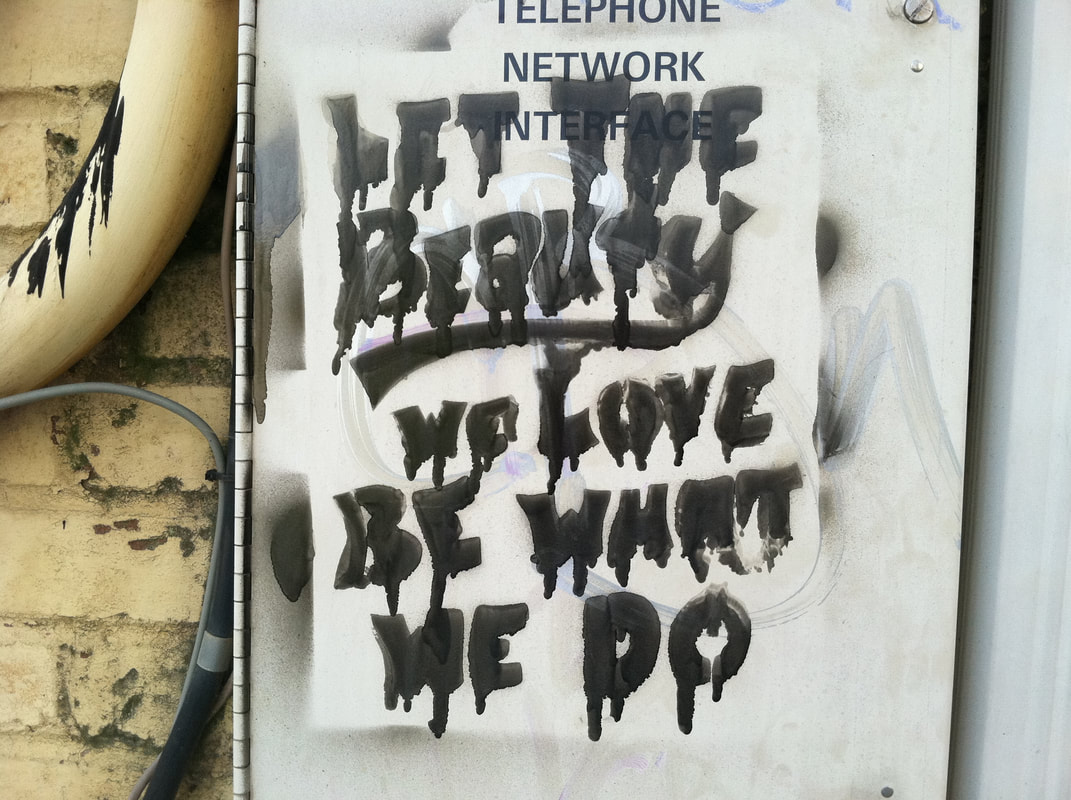
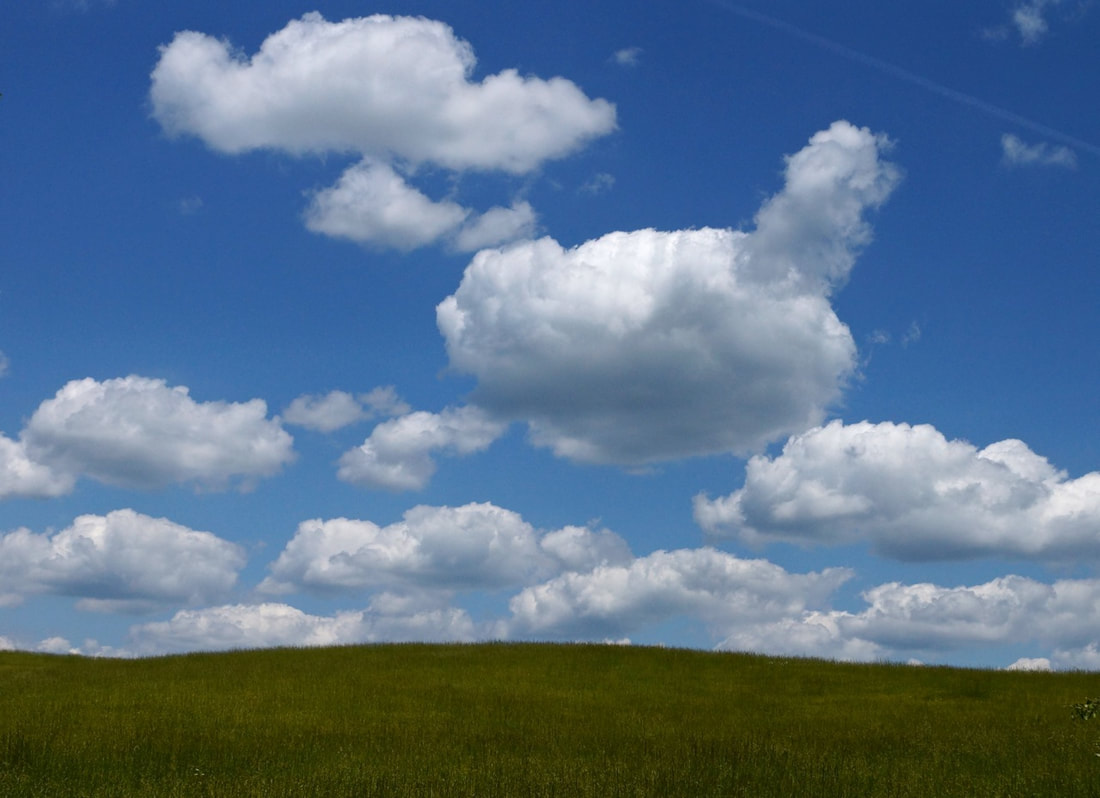
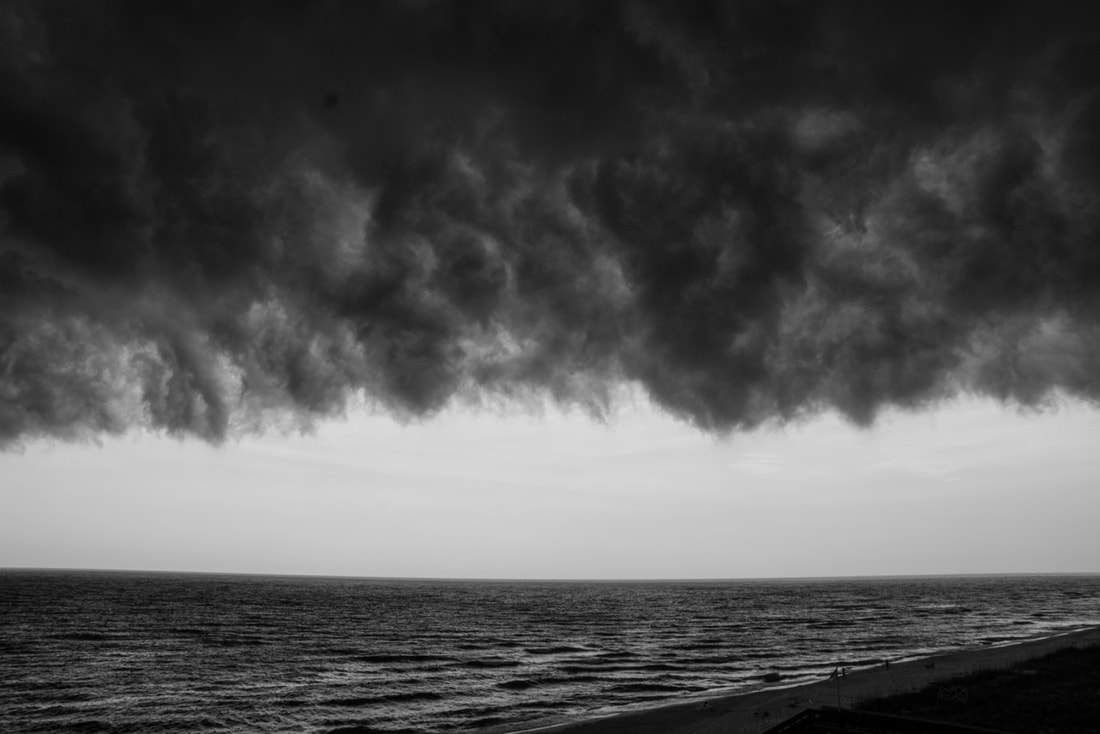
 RSS Feed
RSS Feed